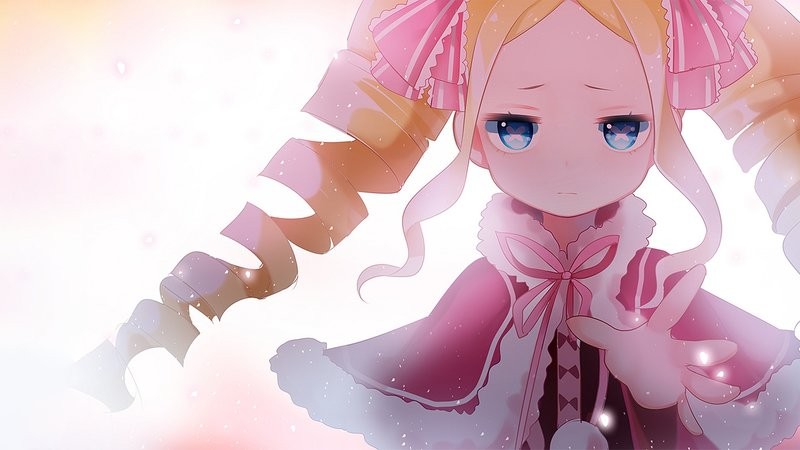Have you noticed that the character Beatrice from Re:Zero ends her sentences with kashira [かしら] and noyo [のよ]? In this article, we will examine the meaning of these words and understand why Beatrice uses these expressions.
Characters often use frequent expressions at the end of sentences to highlight something, to emphasize or to stand out. We have a popular example in the case of Naruto and his sentences ending with dattebayo.
Many other characters in anime often and intentionally end sentences with desu [です]. No matter the occasion, Beatrice uses an uncommon expression that is not usually seen in anime, the expression kashira and noyo.

お前相当に頭が残念みたいかしら。
Looks like she said: It seems like your head is unfortunately not in the right place, huh?
That means: Sounds like you're quite dumb, I suppose!

Table of Content
What does Kashira mean?
The expression kashira [かしら] indicates that you are not sure about something you are talking about. It can be translated as I wonder and is used only by women. Kana [かな] is another expression with the same meaning that is commonly used.
Sites like Crunchyroll usually translate kashira as "I suppose." Used as a question, the expression kashira can mean something like "Do you know?". The difference between Kashira and Kana is that Kashira is often used more by women and is more formal.
The word Kashira is composed of the question particle ka [か] along with shiru [知る] which means to know. For this reason, the expression makes complete sense with "I don't know, I wonder; I'm not sure."

扉を敲いたのは誰かしら?
Looks like she said: Tobira wo tataita nowa dare kashira?
That means: I wonder who knocked on the door?

See below a compilation of times that Beti said to Kashira:
What does Noyo mean?
We believe that noyo [のよ] is an expression used only to give extra emphasis, a rather feminine expression. The expression can mean something like "in fact" or "indeed" indicating that one is already aware of something.
One of the functions of the particle [の] is to normalize verbs and adjectives, but at the end of the sentence it can cause emotional emphasis and provide a confident conclusion. Sometimes, the way it ends the sentence indicates a question.
The particle yo [よ] at the end of sentences also indicates certainty, emphasis, contempt or request. A mix of emotions that don't give meaning to the sentence but show a little of the speaker's personality.

にーちゃの帰りを心待ちにしてたのよ
Looks like she said: I was waiting for Niicha to come back.
That means: I was waiting for you to come home.


Beatrice's personality
Beatrice generally despises others and is terrible at dealing with people trying to get close to her. She is quite stubborn, a character considered tsundere and somewhat childish for referring to herself in the third person using her nickname beti [ベチ].
The way Beti talks is quite interesting, showing her feelings of contempt and ignorance, lack of connection with the subject, lack of affirmation and interest. Hope you enjoyed the article!

隠そうとしてたのかしら。ベチは話さない!
Looks like she said: Kakusou to shi theta no kashira. Bechi wa hanasanai!
That means: I wonder if I was trying to hide. Bechi does not speak!

If you are an English speaker, you will enjoy the video below studying Beatrice's phrases:
